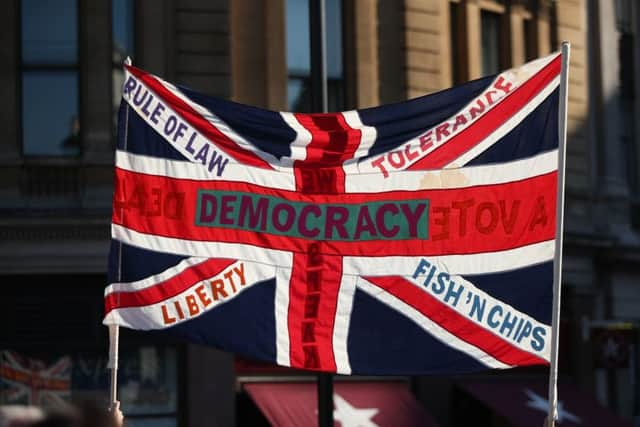Brexit: If it was right to vote once, it can be right to do it twice
and live on Freeview channel 276
There had been concerns expressed by both Church of Ireland archbishops about potential consequences of a ‘leave’ vote, such as difficulties regarding the border, jeopardising established good relationships and damage to cross-border commerce.
When asked about this, Ms Villiers intimated that there should be no problem, telling me that “with a bit of common sense and goodwill we can maintain a border which is just as open after a Brexit vote as it is today”.
That was then. This is now.


Advertisement
Hide AdAdvertisement
Hide AdIn fact, the border has turned out to be one of the most intractable issues in the negotiations between the UK and the EU.
Certainly, all sides - London, Brussels, Belfast and Dublin - want to avoid a ‘hard border’ on this island, with physical checks and their associated hold-ups, quite apart from new border posts potentially becoming targets of violence.
The powers that be want Northern Ireland’s planned departure from the EU to leave the current free flow of goods and people unimpeded.
It has been like squaring the proverbial circle, but with the resulting Withdrawal Agreement and Political Declaration threatening deadlock in the House of Commons, traction for a second referendum is steadily growing.


Advertisement
Hide AdAdvertisement
Hide AdFrom a democratic point of view, if it is right to hold one referendum it is right to hold another, although the question should not be exactly the same because to pose the same question would be to disrespect the initial vote.
The Republic of Ireland held a second referendum on the Lisbon Treaty in 2009, the first referendum in the previous year having rejected the treaty, but this happened only after changes were made to its terms.
The same happened over the Treaty of Nice in 2001-2002.
Unearthing the reason for the Brexit vote is an imprecise science although it is probably fair to say that there was a combination of factors.
Among those no doubt were a general discontent with austerity, a sense of public services being overwhelmed and the perception that the EU is run by a remote governing body heavily influenced by a chosen elite.
Advertisement
Hide AdAdvertisement
Hide AdChurch leaders have called in recent days for those involved in the current debate to be careful with their language.
It is good to be polite, but political discourse is hardly going to be the epitome of gentility from start to finish.
We are all human and at times ‘tick off’ our debating opponents in no uncertain terms, but there is of course a limit to verbal licence.
In his ‘Europe – A history’, Professor Norman Davies refers to ambiguities in both Russia and Britain, at geographical extreme ends of the continent, regarding their sense of European identity.
Advertisement
Hide AdAdvertisement
Hide AdWhat we are witnessing in the Brexit scenario is surely that ambiguity laid bare, the existential weakness giving rise to the traumatic crisis moment that is happening now before our very eyes.
It is not for a churchman to take a partisan political side, but it is perhaps appropriate to observe that Brexit may be about identity as much as about anything else.
Yet, from a church perspective, it certainly is to be affirmed that the most important identity goes beyond this temporal realm, beyond “this fleeting world”, as the Anglican prayer book describes it, and is found in the kingdom of the heart and soul, a kingdom “not of this world”.
• Canon Ian Ellis is a former editor of The Church of Ireland Gazette, which is editorially independent of the Church of Ireland. He is also the current rector of Newcastle, Co Down.